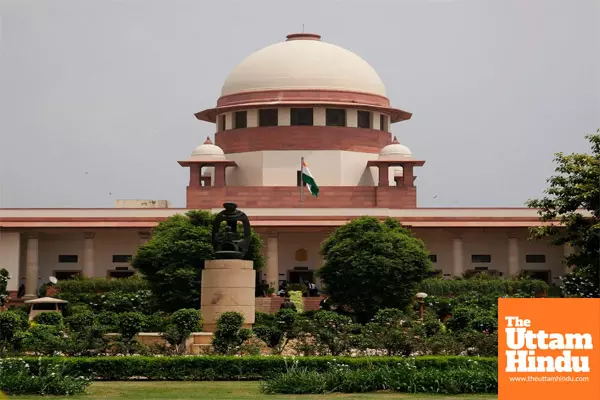
SC Ruling: Tamil Nadu Governor's Withholding Bills Passed By Assembly Ruled 'Unconstitutional'

New Delhi (The Uttam Hindu): In a significant victory for the Tamil Nadu government, the Supreme Court has declared the state Governor's decision to reserve 10 bills for the President's assent as "illegal" and liable to be set aside. The court's ruling emphasizes that the Governor's actions were in "bad faith" and highlights the importance of timely decision-making in the legislative process.
Key Highlights of the Ruling
- Governor's Discretion: The court clarified that under Article 200 of the Constitution, the Governor must either assent to a bill, withhold assent or reserve it for the President's consideration at the initial stage.
- No Absolute Veto: The court emphasized that the Constitution does not permit an "absolute veto" or a "pocket veto," ensuring that the Governor cannot indefinitely delay or block bills.
- Timelines for Assent: The court established clear timelines for the Governor's actions:
- If the Governor wants to withhold assent and send the bill to the President with the advice of the Council of Ministers, this must be done within one month.
- If the Governor wants to withhold assent without the advice of the Council of Ministers, the bill must be returned within three months.
- If the bill is sent again after being reconsidered by the Assembly, the Governor must give assent within one month.
Implications of the Ruling
The Supreme Court's decision has significant implications for the state's legislative process and the role of the Governor. The ruling ensures that the Governor cannot act as a "political obstacle" and must work in tandem with the elected government.
Chief Minister's Reaction
Chief Minister M K Stalin hailed the Supreme Court's judgment as "historic" and a win for all state governments. He expressed strong support for the ruling, emphasizing that the Governor's delay in granting assent to bills passed by the state Assembly was unconstitutional.

